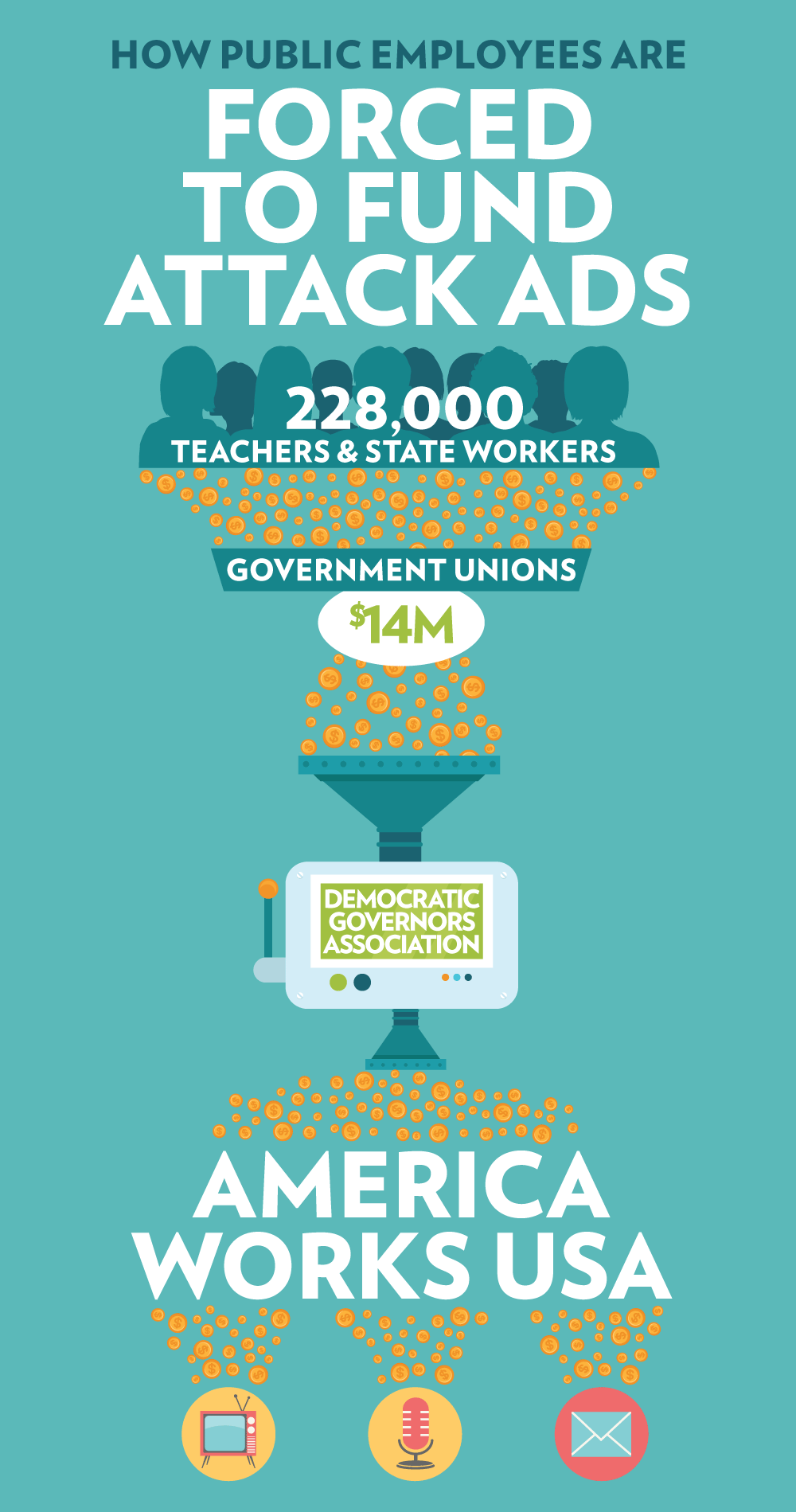Media
Union Dues are Used for Politics (and Members Don’t Know It)
 Yesterday's blog post and infographic noted how union dues from Pennsylvania teachers and state workers fund political ads from America Works USA.
Yesterday's blog post and infographic noted how union dues from Pennsylvania teachers and state workers fund political ads from America Works USA.
In response, on both Twitter and Facebook, union members repeat the idea that union dues cannot be used for politics.
Unfortunately, union members have been misled by their union leadership. On annual reports filed with the US Department of Labor, unions report exactly how much they spend on “political activity and lobbying”.
Last year, AFSCME Council 13 reported spending $992,118 on political activity. PSEA reported a whopping $3.6 million spent from dues on politics.
Unions are also required by the IRS to notify members about how much of their dues go to politics. PSEA, for instance, estimates 10 percent of dues will be used on politics. To keep members in the dark, PSEA buries this disclosure notice deep within their magazine, and no longer posts it online.
The only thing unions cannot spend dues money on is direct contributions to candidates. These contributions come from Political Action Committees (PACs)—though these campaign contributions are also deducted from government workers' paychecks at taxpayers expense.
Union dues can also be funneled to “SuperPACs.” These political committees support candidates for office—explicitly calling for or against the election of a candidate (though spending cannot legally be coordinated with a candidate).
As the Pennsylvania Department of State notes, these SuperPACs—technically called “independent expenditure committees”—can receive unlimited amounts of union dues. Last year, three government unions (AFSCME, the National Education Association, and the American Federation of Teachers) gave $1.6 million in union dues to a SuperPAC called Pennsylvania Families First—which supported Gov. Tom Wolf's election.
It is unfortunate that union leaders continue to mislead their members on how much they are spending from workers' dues on politics.